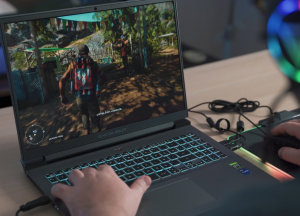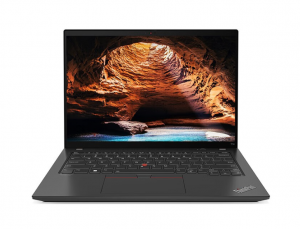Gaming Consoles Compared: PlayStation vs. Xbox vs. Nintendo
Introduction to Gaming Consoles
Gaming consoles have revolutionized the way we experience video games, offering a dedicated platform for immersive gameplay and multimedia entertainment. With the three major players in the market—PlayStation, Xbox, and Nintendo—each offering unique features and gaming experiences, choosing the right console can be a daunting task for consumers.
History and Evolution
From the simplistic joys of Atari to the groundbreaking Nintendo Entertainment System (NES), the gaming console landscape has evolved significantly. Sony’s PlayStation, Microsoft’s Xbox, and Nintendo’s consoles have continually pushed the boundaries of gaming technology, introducing innovative features and captivating generations of gamers worldwide.
Technical Specifications
When comparing gaming consoles, understanding the hardware specifications is crucial. PlayStation consoles typically boast powerful CPUs and GPUs optimized for gaming, while Xbox focuses on integrating multimedia capabilities with robust hardware. Nintendo consoles, known for their innovation, often prioritize unique gaming experiences over raw processing power.

Gaming Experience
The user interface plays a pivotal role in the overall gaming experience. PlayStation offers a sleek, intuitive interface with seamless navigation, complemented by stunning graphics and high frame rates. Xbox consoles excel in providing a multimedia hub, combining gaming with entertainment services like Xbox Game Pass. Nintendo consoles, like the Switch, offer versatility with both handheld and docked modes, appealing to a broader audience.
Exclusive Games
Exclusive titles define each console’s identity. PlayStation boasts critically acclaimed exclusives like “God of War” and “The Last of Us,” emphasizing narrative-driven experiences. Xbox’s Halo and Forza series highlight their commitment to first-party franchises and multiplayer gaming. Meanwhile, Nintendo’s iconic franchises such as Mario and Zelda continue to captivate gamers of all ages with innovative gameplay and nostalgic charm.
Online Services
PlayStation Network (PSN), Xbox Live, and Nintendo Switch Online each offer unique online experiences. PSN and Xbox Live provide robust multiplayer capabilities, digital storefronts, and monthly free games through subscription services. Nintendo Switch Online offers retro game access alongside online play, though its offerings are often perceived as less comprehensive compared to its counterparts.

Multimedia Capabilities
Beyond gaming, modern consoles serve as multimedia hubs. PlayStation and Xbox integrate streaming services like Netflix and Spotify, with support for 4K Blu-ray playback. Nintendo consoles, while less focused on multimedia, provide basic streaming options and emphasize gaming versatility with their hybrid design.
Controller Design and Features
Controllers are integral to the gaming experience, with each console offering distinct designs and features. PlayStation’s DualSense controller enhances immersion with adaptive triggers and haptic feedback, tailored for next-gen gaming experiences. Xbox’s ergonomic Xbox Wireless Controller prioritizes comfort and compatibility across devices. Nintendo’s Joy-Con controllers offer unique motion controls and versatility for multiplayer gaming.
Community and Social Interaction
Console ecosystems foster vibrant communities of gamers worldwide. Online multiplayer features, social sharing capabilities, and cross-platform play initiatives enhance connectivity and engagement among players. Each console’s ecosystem influences social interaction, with features like clubs and communities on Xbox, while PlayStation emphasizes social sharing through the Share button and Nintendo promotes local multiplayer experiences.
Cost and Value
Investing in a gaming console involves considering both upfront costs and long-term value. PlayStation and Xbox consoles often debut at similar price points, differentiated by exclusive bundles and subscription offers. Nintendo consoles like the Switch provide value through their hybrid design and exclusive game library, appealing to families and casual gamers seeking versatile entertainment.
Reliability and Build Quality
Reliability is crucial when choosing a gaming console. PlayStation, Xbox, and Nintendo each prioritize build quality and reliability, though occasional hardware issues may arise. Warranty and support options vary, influencing consumer confidence in their console investment.
Brand Loyalty and Ecosystem
Brand loyalty plays a significant role in consumer preferences. PlayStation loyalists appreciate Sony’s commitment to exclusive content and cutting-edge technology. Xbox enthusiasts value Microsoft’s ecosystem integration and commitment to backward compatibility. Nintendo fans embrace the company’s innovative game design and family-friendly approach, fostering a unique gaming community.
Future Prospects
Looking ahead, the future of gaming consoles is promising. Advances in technology, such as cloud gaming and augmented reality, promise to redefine gaming experiences across platforms. PlayStation, Xbox, and Nintendo are poised to innovate further, shaping the next generation of gaming with enhanced graphics, immersive gameplay, and seamless integration across devices.
Conclusion
In conclusion, choosing between PlayStation, Xbox, and Nintendo involves considering personal preferences, gaming priorities, and ecosystem compatibility. Each console offers a distinct experience tailored to different gaming demographics, from hardcore enthusiasts to casual gamers seeking entertainment versatility.
FAQs
- What should I consider when choosing between PlayStation, Xbox, and Nintendo? Consider your gaming preferences, exclusive game titles, online features, and ecosystem compatibility.
- Are there any upcoming exclusives that might sway my decision? Stay updated on upcoming titles announced by each console’s developers, as exclusive games can significantly impact your decision.
- How important is online gaming capability when choosing a console? Online gaming capability is crucial for multiplayer experiences; consider the reliability and features of each console’s online service.
- What are the main differences between PlayStation Network and Xbox Live? PlayStation Network and Xbox Live differ in their exclusive content, subscription benefits, and community features, catering to different gaming preferences.
- Can I play with friends who own different consoles? Cross-platform play is becoming more common; check compatibility details for specific games to play with friends on different consoles.
This structure aims to provide a comprehensive comparison while ensuring readability and engagement, catering to both seasoned gamers and those new to console gaming.














Post Comment